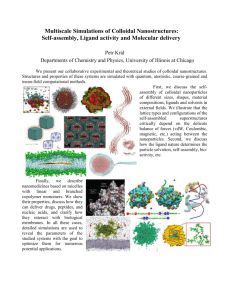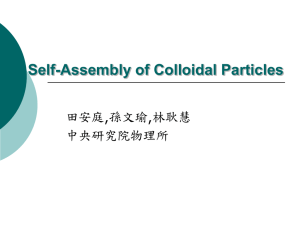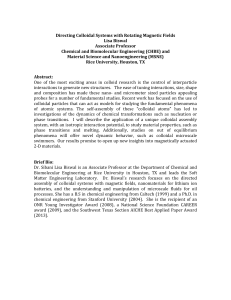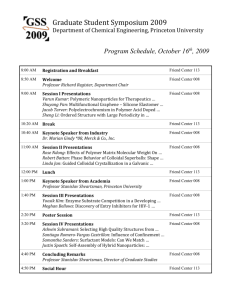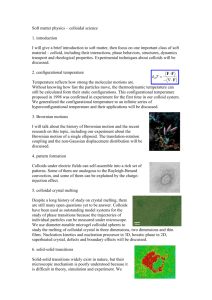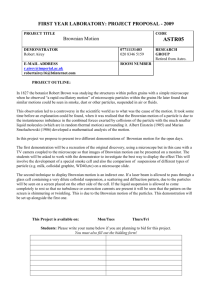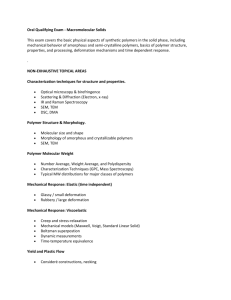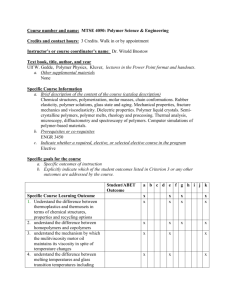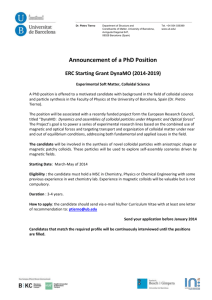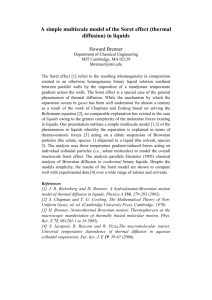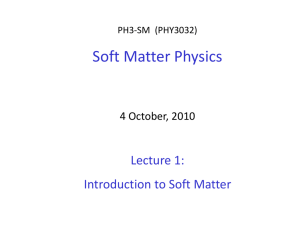Course Information Course title Fundamental of soft matter Semester
advertisement
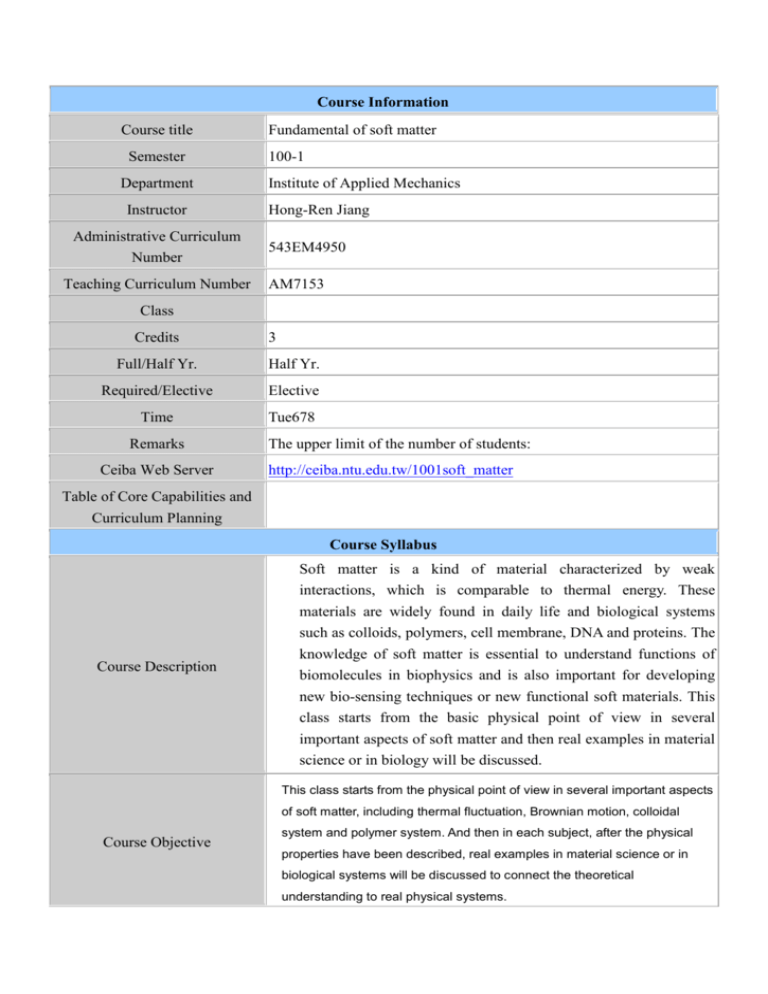
Course Information Course title Semester Department Instructor Administrative Curriculum Number Teaching Curriculum Number Fundamental of soft matter 100-1 Institute of Applied Mechanics Hong-Ren Jiang 543EM4950 AM7153 Class Credits 3 Full/Half Yr. Half Yr. Required/Elective Elective Time Tue678 Remarks Ceiba Web Server The upper limit of the number of students: http://ceiba.ntu.edu.tw/1001soft_matter Table of Core Capabilities and Curriculum Planning Course Syllabus Course Description Soft matter is a kind of material characterized by weak interactions, which is comparable to thermal energy. These materials are widely found in daily life and biological systems such as colloids, polymers, cell membrane, DNA and proteins. The knowledge of soft matter is essential to understand functions of biomolecules in biophysics and is also important for developing new bio-sensing techniques or new functional soft materials. This class starts from the basic physical point of view in several important aspects of soft matter and then real examples in material science or in biology will be discussed. This class starts from the physical point of view in several important aspects of soft matter, including thermal fluctuation, Brownian motion, colloidal Course Objective system and polymer system. And then in each subject, after the physical properties have been described, real examples in material science or in biological systems will be discussed to connect the theoretical understanding to real physical systems. COURSE OUTLINE: 1. Introduction to soft matter 2. Brownian motion and thermal fluctuation 3. Equilibrium properties of colloidal systems 4. Dynamical properties of colloidal systems 5. Photonic crystal and protein crystallization 6. Statistical physics of single polymers 7. Stretching of single chain and single molecular biophysics 8. Polymer solution 9. Colloid-polymer system 10. Asymmetric material and self-assembly 11. Membrane elasticity 12. Phoretic motion of soft matter 13. Solid –liquid interface Course Requirement Office Hours GENERAL PHYSICS Friday 13:00-17:00 Soft Condensed Matter,Jones (2002) Soft Condensed Matter Physics in Molecular and Cell Biology, Taylor & Francis, (2006) References Polymer Solutions: An Introduction to Physical Properties, John Wiley & Sons, (2002) Fragile Objects: Soft Matter, Hard Science, and the Thrill of Discovery, Pierre-Gilles de Gennes (1996) Designated reading No. Grading Item % 1. Midterm exam 30% 2. Final report 40% Discussion and 3. presentation 4. 30% Explanations for the conditions Progress Week Date Topic Week 1 9/13 Introduction to soft matter Week 2 9/20 Brownian motion and thermal fluctuation Week 3 9/27 Equilibrium properties of colloidal systems Week 4 10/4 Dynamical properties of colloidal systems Week 5 10/11 Photonic crystal and protein crystallization Week 6 10/18 Statistical physics of single polymers Week 7 10/25 Stretching of single chain and single molecular biophysics Week 8 11/1 Polymer solution Week 9 11/8 Midterm exam Week 10 11/15 Colloid-polymer system Week 11 11/22 Asymmetric material and self-assembly Week 12 11/29 Phoretic motion of soft matter Week 13 12/6 Week 14 12/13 Invite talk: mircofluidics Week 15 12/20 Invite talk: 3D cell culture Week 16 12/27 Student presentation Week 17 1/3 Solid –liquid interface Student presentation
